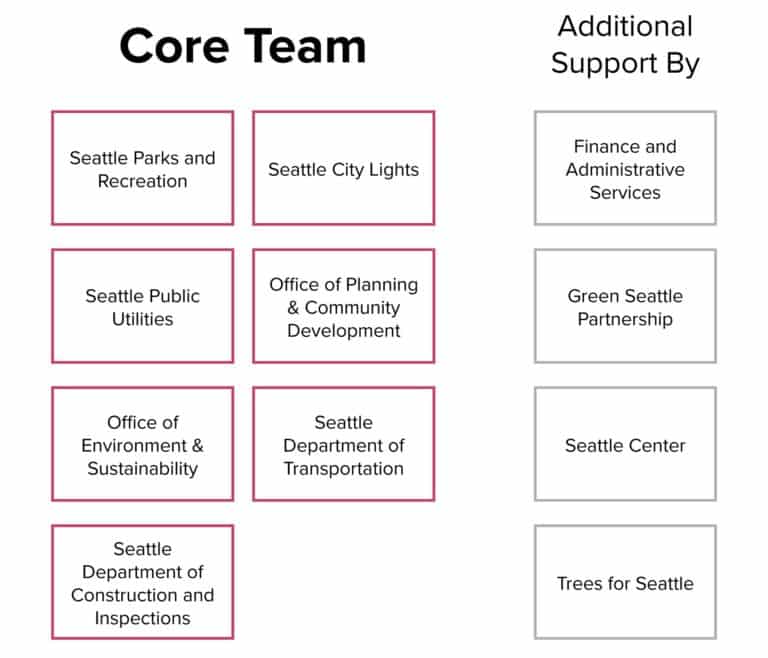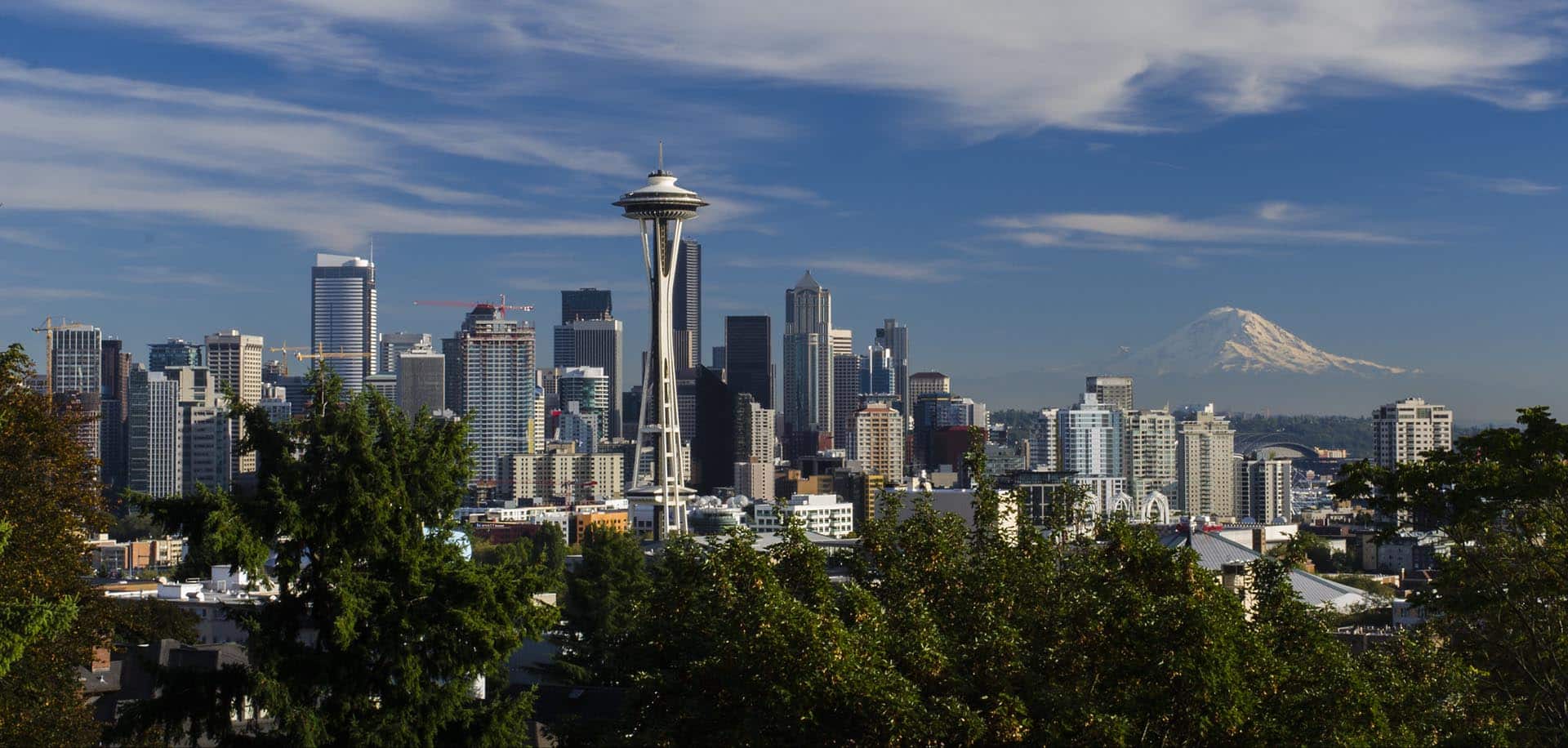Urban forest management in the City of Seattle, WA unites the efforts of many different entities. In 2007, the City released its first Urban Forest Management Plan, which outlined its goal to increase canopy cover to 30% by 2037 as well as its overarching vision and guiding principles. (City of Seattle, 2013)
In 2009, the mayor and city council established a “Core Team” of representatives from seven municipal agencies involved in managing the urban forest to support its urban forestry commission in decision-making (see image below). But Seattle also works closely with the Green Seattle Partnership (GSP), a collaborative public-private organization, and Trees for Seattle, the city’s interdepartmental outreach and education program. (City of Seattle, 2019)

To guide the development of the next iteration of its forest management plan, the City commissioned an assessment of its existing urban forestry activities and its Urban Forest Management Plan. This assessment revealed areas of opportunity and provided recommendations for improvement. (Davey Resource Group, Inc., 2019)
Seattle is also seeking to create a more inclusive and equitable program. In 2018 and 2019, the city conducted community listening sessions and other engagement activities in under-represented communities. The concerns and perspectives expressed will be incorporated into the Seattle’s revised 2020 Urban Forest Management Plan. (Trees for Seattle, 2020)
